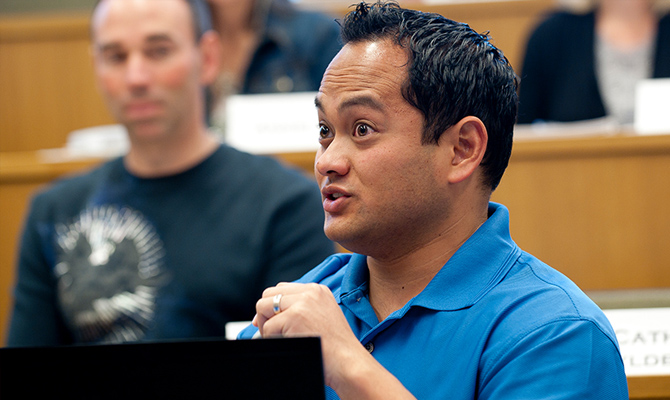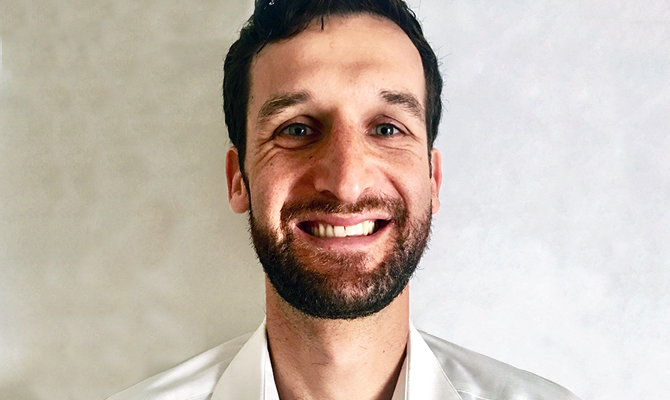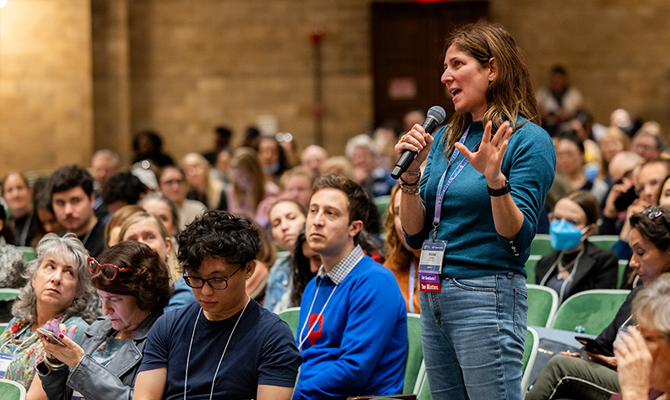Service learning projects completed in 2019 include:
This paper sets forth the empirical and theoretical underpinnings and evidence-based activities that teachers of students with special needs in low-income schools can utilize to manage behavioral challenges. The authors identify applicable positive psychology resources, as requested by First Book, a nonprofit that provides member educators with resources to help children learn and seeks to accelerate implementation of innovative research in low-income schools. The authors, at the request of First Book, focus on emotional intelligence, growth mindset, self-regulation, and character strengths, operationalizing these topics with a two-pronged approach: 1) specific actions teachers can take to build positive classrooms and 2) practical, in-the-moment strategies teachers can apply when facing common classroom challenges. The authors include a detailed “Super Circle” intervention as an example of embedding positive psychology interventions into existing teaching practices. While the authors recognize the need for further research on the application of positive psychology tools to special needs populations, they remain hopeful that these recommendations will benefit teachers and students with special needs in low-income schools. Finally, the authors provide a measurement plan First Book could use to determine the effectiveness of the resources they create and provide to their members based on the research and recommendations contained herein.
See the full service learning project on Penn's Scholarly Commons website.
Big Brothers Big Sisters (BBBS) is a national nonprofit organization that facilitates one-on-one mentoring between at-risk youth and adults in order to build developmental assets and promote the well-being of youth. The organization utilizes mentoring to facilitate strong, caring relationships that help marginalized youth realize their potential. The Great Lakes Bay Chapter of BBBS (Midland, Michigan) seeks to expand positive psychology resources and curriculum to: (a) bring together staff, mentors, mentees, and parents with a common language; (b) build and support strong relationships; and (c) enhance well-being in youth. This project provides a character strengths curriculum to support these goals. The project includes a train-the-trainer model and implementation recommendations to pilot the curriculum at the Great Lakes Bay chapter. If impactful, BBBS can adapt and scale the curriculum for other programs. To meet the diverse needs of the mentees, a research-informed Positive Psychology Playbook is included. The playbook is an expertise kit covering eight topics relevant to the development of at-risk youth. These topics, which include gratitude, grit, growth mindset, optimism, resilience, self-efficacy, character strengths, and positive relationships, further equip the Great Lakes Bay Chapter with positive psychology knowledge, tips, and activities to support the development and well-being of marginalized youth.
See the full service learning project on Penn's Scholarly Commons website.
Childhood poverty has been linked with gaps in physical, emotional, and cognitive outcomes. Previous research sheds light on potential interventions for helping at-risk youth. We combine these findings with proven positive psychology interventions to create a curriculum for an organization serving at-risk youth in Trenton, New Jersey. The workshops are geared toward teaching components that enable lasting well-being using existing positive psychology frameworks, such as Martin Seligman’s PERMA. We also adapt lessons using VIA Character Strengths and resiliency factors for an adolescent population, and leverage behavioral modeling, self-agency, and environmental mastery to create sustainable programming. If successful, these interventions may teach us how positive psychology can enable flourishing in at-risk youth populations.
See the full service learning project on Penn's Scholarly Commons website.
Grief does not discriminate; most individuals in this world, regardless of background or life circumstances, will eventually experience the loss of someone close to them. The Children’s Bereavement Center, based in Miami, Florida, offers no-cost peer-support groups to grieving children, adolescents, and adults. The following paper presents an overview of the organization as well as a customized application plan for how positive psychology can be further integrated into the Children’s Bereavement Center’s services. We include a situation analysis of the grief sector, looking specifically at the Children’s Bereavement Center’s influence in southern Florida, a literature review of positive psychology concepts that impact the grieving process, and an application plan based on recommended media formats for age-appropriate content delivery. The plan outlines the creation of an online module titled “Grief to Growth,” with headings of Heal and Hope, Recovery and Renewal, and Believe and Build. Within the module are suggestions for downloadable handouts, delivery of relevant information through email and social media, podcast topics, journal prompts, and daily texts. Finally, we analyze prosocial behavior to provide recommendations for increasing donor and volunteer engagement. This plan is intended to assist the Children’s Bereavement Center as they further integrate positive psychology into the organization.
See the full service learning project on Penn's Scholarly Commons website.
The Ngwaagan Gamig Recovery Centre/Rainbow Lodge on the Wikwemikong Unceded Reserve in Ontario, Canada, provides culturally based alcohol and drug addiction treatment. We seek to support the staff’s sense of belonging and mattering, and engagement with their leader’s vision to incorporate positive psychology into the culture of the centre. Indigenous culture is being leveraged to heal from within after a history of oppression and cultural genocide in Canada (TRCC, 2015). Informed by the inherent resilience of the Anishinaabe people and culture, and current psychological science, we propose two positive interventions to cultivate mattering among staff. We recommend a peer support framework to establish a foundation of connection, and accompanying storytelling interventions grounded in Indigenous cultural practices. The literature emphasizes storytelling and cultural identity as essential for building resilience and belonging in Indigenous communities, especially for those dealing with addiction. We build upon current storytelling initiatives at Rainbow Lodge and incorporate Anishinaabe culture. We suggest culturally relevant measurement through talking circles and tools already used by the Rainbow Lodge to measure impact. We believe the proposed applications will enhance among the staff a sense of individual and community belonging, purpose and mattering, resulting in a willingness to participate and contribute to new initiatives, and overall increased well-being.
See the full service learning project on Penn's Scholarly Commons website.
Project 440 aims to help young musicians develop their skillset by cultivating strengths of character that will contribute to overall resilience. Strategic cultivation of resilience leads to development of patterns of positive change during or following challenging circumstances, both significant and small. These individual characteristics include self-efficacy, optimism, hope, grit, and character strengths. Each of these characteristics can be measured and is supported by a strong body of scientific literature demonstrating positive outcomes, including among students. Weaving these concepts into an already effective curriculum through research-based annotations, measurements, and interventions is intended to fortify resiliency in young musicians and will enhance an already robust educational program using positive psychology practices and principles.
See the full service learning project on Penn's Scholarly Commons website.
Inclusive communities are places where all citizens feel a sense of acceptance and belonging. In Midland, MI, a dedicated group of citizens has made a community-wide culture of inclusion their priority. These are the members of the Midland Cultural Awareness Coalition (CAC), a community-based initiative which has attracted a diverse group of stakeholders from a broad cross-section of Midland County. This spring, CAC leaders have collaborated with a team of graduate students (Team Black) enrolled in the University of Pennsylvania’s Master of Applied Positive Psychology (MAPP) program. As part of their semester-long course in Applying Positive Interventions in Institutions, Team Black identified CAC’s organizational strengths, identified opportunities, and drew upon their knowledge of positive psychology to create an application that would best support the CAC in pursuit of their vision. The team conducted a situation analysis and researched the academic literature in the fields of coalition effectiveness, goal-setting, inclusion and diversity, bonding and bridging social capital, psychological safety, and psychological capital. Team Black recommends the CAC embark upon an Appreciative Inquiry-informed strategic planning process. This process will empower the coalition, engage the community, and provide a bridge from where the CAC is today, to where they hope to be tomorrow. The desired outcomes of this process include engaging a broader network of stakeholders, creating a common language around inclusion, clarifying the organization’s goal hierarchy, and establishing clear priorities for investing the coalition’s limited human and financial resources.
See the full service learning project on Penn's Scholarly Commons website.






